
By now, the story behind the making of
Boyhood, director Richard Linklater’s ode to growing up in America, is cemented in filmmaking lore. Linklater, employing a cast of mostly unknown actors, filmed the drama in spurts over the course of 12 years between 2002 and 2014. Anchored by solid Hollywood vets Ethan Hawke and Patricia Arquette, the film’s main character, Mason, is played by Ellar Coltrane, who was cast in the role when he was just 7 years old.
The film follows Mason from the ages of 6 to 18 as he and his older sister, Samantha (played by Linklater’s own daughter), deal with the rocky-but-not-horrific aftermath of their parents’ divorce. Arquette is solid as the single mom struggling to balance caring for her children, continuing her education, and navigating a series of disappointing relationships. And Hawke is pitch-perfect as the stereotypical “weekend dad” who had kids too young and seems intent on sowing what’s left of his wild oats, while making just slightly more than the minimum effort to be a presence in his kids’ lives.
Watching Coltrane as Mason literally grow up before your eyes is undoubtedly one of the most unique and memorable movie-going experiences you will ever have. And it’s equally fascinating to see the recognizable faces of Hawke and Arquette instantly transformed into versions of themselves from 12 years ago. Having recently seen them in projects filmed in the last couple of years (
Boardwalk Empire for Arquette and
Predestination for Hawke) made the first appearances of their younger selves even more jarring.
 Boyhood
Boyhood handles the passage of time deftly, and treats it not unlike it occurs in our own lives; the sand passing through the hourglass is subtle, but noticeable. Beyond the changes in the young actors’ appearances (and God bless these kids for allowing Linklater to document some of the most awkward years of their adolescence on film), Linklater’s wry use of popular music and references to technology to reflect the moment in time each scene occupies is masterful.
There is no doubt that, as an exercise in patience, ambition, vision, and risk-taking,
Boyhood will go down in history as a remarkable achievement. So, after acknowledging the grandeur of
Boyhood as an exercise in filmmaking, we’re left with the one question with which most viewers are concerned: Is it a good movie? Unfortunately, that’s not an easy question to answer.
The most important thing you need to know about
Boyhood is this: Nothing happens.
Ok, not “nothing,” but certainly none of the things you would expect to be included in the narrative of a modern drama from an acclaimed director. There are no huge conflicts or revelations beyond the normal struggles and formative moments that fill adolescence for most young Americans. And scenes that, in any other movie, would be used to set up a major reveal or turning point — Mason riding in the back seat as his drunk step-dad dangerously weaves in and out of traffic, for example — come and go without any payoff. You could describe
Boyhood as a series of loosely related scenes, and you wouldn’t be far off. It’s a movie that lives in the “in-between” moments, eschewing a traditional narrative structure and instead trading in the currency of shared experiences, those moments nearly everyone past the age of 21 will recognize from their own lives. Seeing your parents fight. Drinking your first beer. Taking your first road trip with a friend or significant other. Enrolling in a new school. Figuring out who you are and, more importantly, who you aren’t. All of those moments are depicted in
Boyhood.
And you have to give it to Linklater for choosing to use mostly non-professional actors in the cast. I mean, if you don’t think he knows what he’s doing when it comes to casting unknowns in major roles, I’ve got two words for you: Wiley Wiggins. He played Mitch Kramer in
Dazed and Confused and held his own as the emotional center of a film that was bursting with future Hollywood stars. But in
Boyhood, many of the supporting characters, including Linklater’s own daughter, are so raw from an acting standpoint that I found myself being pulled out of what little narrative existed in the film and just focusing on how BAD some of their performances were.

There’s a scene early in the movie, shortly after Hawke’s character shows up to take the kids out for the night after being “in Alaska” for the last year and half. At a local bowling alley, Mason shuffles to the line, rolls a wobbly ball down the lane, and watches helplessly as it slowly drifts into the gutter, failing to connect with a single pin. Disappointed, he says aloud, “I wish I could use the bumpers.” His dad replies, “You don’t want the bumpers. Bumpers are for kids. Life doesn’t give you bumpers.” Life’s hard, Hawke’s character points out, and there’s nothing to protect you from its numerous challenges. That scene is a pretty great way of pointing out that growing up isn’t always easy and there isn’t always someone there to protect you or hold your hand. And, intentional or not, it’s an apt metaphor for
Boyhood itself.
With a runtime of 2 hours and 46 minutes,
Boyhood isn’t a movie you should go into unprepared. By eschewing tragedy in favor of everyday melodrama, Linklater creates a film that is filled with moments nearly everyone will recognize and identify with, but which don’t land with any sort of profound resonance. It isn’t the best movie of 2014, not by a long shot. And if the Academy chooses to honor the film with the Oscar for Best Picture, it almost certainly will be based on
Boyhood’s merit as an ambitious artistic undertaking as opposed to its quality as a film. Though, if we’re being honest, that wouldn’t be the worst sin the Academy ever committed.
Random observations:
- I think the most jarring moment of the entire film was seeing Roger Clemens in a Houston Astros uniform.
- It’s been mentioned in other pieces written about the film, but the scene where Mason and Mason, Sr. discuss whether or not another Star Wars movie will ever get made is pretty great.
- That dude who played the stoner doofus friend in The Descendants shows up about midway through the movie and is as hilariously awkward as you remember him.
- If this film is put in a time capsule and, thousands of years from now aliens or cyborgs or whatever species rules the planet watches it as the sole remaining artifact to determine what life was like for humans, their one key takeaway will be this: In the early 2000s, step-dads — every single one of them — were drunken assholes.
@TheSEShepherd
 By now, the story behind the making of Boyhood, director Richard Linklater’s ode to growing up in America, is cemented in filmmaking lore. Linklater, employing a cast of mostly unknown actors, filmed the drama in spurts over the course of 12 years between 2002 and 2014. Anchored by solid Hollywood vets Ethan Hawke and Patricia Arquette, the film’s main character, Mason, is played by Ellar Coltrane, who was cast in the role when he was just 7 years old.
The film follows Mason from the ages of 6 to 18 as he and his older sister, Samantha (played by Linklater’s own daughter), deal with the rocky-but-not-horrific aftermath of their parents’ divorce. Arquette is solid as the single mom struggling to balance caring for her children, continuing her education, and navigating a series of disappointing relationships. And Hawke is pitch-perfect as the stereotypical “weekend dad” who had kids too young and seems intent on sowing what’s left of his wild oats, while making just slightly more than the minimum effort to be a presence in his kids’ lives.
Watching Coltrane as Mason literally grow up before your eyes is undoubtedly one of the most unique and memorable movie-going experiences you will ever have. And it’s equally fascinating to see the recognizable faces of Hawke and Arquette instantly transformed into versions of themselves from 12 years ago. Having recently seen them in projects filmed in the last couple of years (Boardwalk Empire for Arquette and Predestination for Hawke) made the first appearances of their younger selves even more jarring.
By now, the story behind the making of Boyhood, director Richard Linklater’s ode to growing up in America, is cemented in filmmaking lore. Linklater, employing a cast of mostly unknown actors, filmed the drama in spurts over the course of 12 years between 2002 and 2014. Anchored by solid Hollywood vets Ethan Hawke and Patricia Arquette, the film’s main character, Mason, is played by Ellar Coltrane, who was cast in the role when he was just 7 years old.
The film follows Mason from the ages of 6 to 18 as he and his older sister, Samantha (played by Linklater’s own daughter), deal with the rocky-but-not-horrific aftermath of their parents’ divorce. Arquette is solid as the single mom struggling to balance caring for her children, continuing her education, and navigating a series of disappointing relationships. And Hawke is pitch-perfect as the stereotypical “weekend dad” who had kids too young and seems intent on sowing what’s left of his wild oats, while making just slightly more than the minimum effort to be a presence in his kids’ lives.
Watching Coltrane as Mason literally grow up before your eyes is undoubtedly one of the most unique and memorable movie-going experiences you will ever have. And it’s equally fascinating to see the recognizable faces of Hawke and Arquette instantly transformed into versions of themselves from 12 years ago. Having recently seen them in projects filmed in the last couple of years (Boardwalk Empire for Arquette and Predestination for Hawke) made the first appearances of their younger selves even more jarring.
 Boyhood handles the passage of time deftly, and treats it not unlike it occurs in our own lives; the sand passing through the hourglass is subtle, but noticeable. Beyond the changes in the young actors’ appearances (and God bless these kids for allowing Linklater to document some of the most awkward years of their adolescence on film), Linklater’s wry use of popular music and references to technology to reflect the moment in time each scene occupies is masterful.
There is no doubt that, as an exercise in patience, ambition, vision, and risk-taking, Boyhood will go down in history as a remarkable achievement. So, after acknowledging the grandeur of Boyhood as an exercise in filmmaking, we’re left with the one question with which most viewers are concerned: Is it a good movie? Unfortunately, that’s not an easy question to answer.
The most important thing you need to know about Boyhood is this: Nothing happens.
Ok, not “nothing,” but certainly none of the things you would expect to be included in the narrative of a modern drama from an acclaimed director. There are no huge conflicts or revelations beyond the normal struggles and formative moments that fill adolescence for most young Americans. And scenes that, in any other movie, would be used to set up a major reveal or turning point — Mason riding in the back seat as his drunk step-dad dangerously weaves in and out of traffic, for example — come and go without any payoff. You could describe Boyhood as a series of loosely related scenes, and you wouldn’t be far off. It’s a movie that lives in the “in-between” moments, eschewing a traditional narrative structure and instead trading in the currency of shared experiences, those moments nearly everyone past the age of 21 will recognize from their own lives. Seeing your parents fight. Drinking your first beer. Taking your first road trip with a friend or significant other. Enrolling in a new school. Figuring out who you are and, more importantly, who you aren’t. All of those moments are depicted in Boyhood.
And you have to give it to Linklater for choosing to use mostly non-professional actors in the cast. I mean, if you don’t think he knows what he’s doing when it comes to casting unknowns in major roles, I’ve got two words for you: Wiley Wiggins. He played Mitch Kramer in Dazed and Confused and held his own as the emotional center of a film that was bursting with future Hollywood stars. But in Boyhood, many of the supporting characters, including Linklater’s own daughter, are so raw from an acting standpoint that I found myself being pulled out of what little narrative existed in the film and just focusing on how BAD some of their performances were.
Boyhood handles the passage of time deftly, and treats it not unlike it occurs in our own lives; the sand passing through the hourglass is subtle, but noticeable. Beyond the changes in the young actors’ appearances (and God bless these kids for allowing Linklater to document some of the most awkward years of their adolescence on film), Linklater’s wry use of popular music and references to technology to reflect the moment in time each scene occupies is masterful.
There is no doubt that, as an exercise in patience, ambition, vision, and risk-taking, Boyhood will go down in history as a remarkable achievement. So, after acknowledging the grandeur of Boyhood as an exercise in filmmaking, we’re left with the one question with which most viewers are concerned: Is it a good movie? Unfortunately, that’s not an easy question to answer.
The most important thing you need to know about Boyhood is this: Nothing happens.
Ok, not “nothing,” but certainly none of the things you would expect to be included in the narrative of a modern drama from an acclaimed director. There are no huge conflicts or revelations beyond the normal struggles and formative moments that fill adolescence for most young Americans. And scenes that, in any other movie, would be used to set up a major reveal or turning point — Mason riding in the back seat as his drunk step-dad dangerously weaves in and out of traffic, for example — come and go without any payoff. You could describe Boyhood as a series of loosely related scenes, and you wouldn’t be far off. It’s a movie that lives in the “in-between” moments, eschewing a traditional narrative structure and instead trading in the currency of shared experiences, those moments nearly everyone past the age of 21 will recognize from their own lives. Seeing your parents fight. Drinking your first beer. Taking your first road trip with a friend or significant other. Enrolling in a new school. Figuring out who you are and, more importantly, who you aren’t. All of those moments are depicted in Boyhood.
And you have to give it to Linklater for choosing to use mostly non-professional actors in the cast. I mean, if you don’t think he knows what he’s doing when it comes to casting unknowns in major roles, I’ve got two words for you: Wiley Wiggins. He played Mitch Kramer in Dazed and Confused and held his own as the emotional center of a film that was bursting with future Hollywood stars. But in Boyhood, many of the supporting characters, including Linklater’s own daughter, are so raw from an acting standpoint that I found myself being pulled out of what little narrative existed in the film and just focusing on how BAD some of their performances were.
 There’s a scene early in the movie, shortly after Hawke’s character shows up to take the kids out for the night after being “in Alaska” for the last year and half. At a local bowling alley, Mason shuffles to the line, rolls a wobbly ball down the lane, and watches helplessly as it slowly drifts into the gutter, failing to connect with a single pin. Disappointed, he says aloud, “I wish I could use the bumpers.” His dad replies, “You don’t want the bumpers. Bumpers are for kids. Life doesn’t give you bumpers.” Life’s hard, Hawke’s character points out, and there’s nothing to protect you from its numerous challenges. That scene is a pretty great way of pointing out that growing up isn’t always easy and there isn’t always someone there to protect you or hold your hand. And, intentional or not, it’s an apt metaphor for Boyhood itself.
With a runtime of 2 hours and 46 minutes, Boyhood isn’t a movie you should go into unprepared. By eschewing tragedy in favor of everyday melodrama, Linklater creates a film that is filled with moments nearly everyone will recognize and identify with, but which don’t land with any sort of profound resonance. It isn’t the best movie of 2014, not by a long shot. And if the Academy chooses to honor the film with the Oscar for Best Picture, it almost certainly will be based on Boyhood’s merit as an ambitious artistic undertaking as opposed to its quality as a film. Though, if we’re being honest, that wouldn’t be the worst sin the Academy ever committed.
Random observations:
There’s a scene early in the movie, shortly after Hawke’s character shows up to take the kids out for the night after being “in Alaska” for the last year and half. At a local bowling alley, Mason shuffles to the line, rolls a wobbly ball down the lane, and watches helplessly as it slowly drifts into the gutter, failing to connect with a single pin. Disappointed, he says aloud, “I wish I could use the bumpers.” His dad replies, “You don’t want the bumpers. Bumpers are for kids. Life doesn’t give you bumpers.” Life’s hard, Hawke’s character points out, and there’s nothing to protect you from its numerous challenges. That scene is a pretty great way of pointing out that growing up isn’t always easy and there isn’t always someone there to protect you or hold your hand. And, intentional or not, it’s an apt metaphor for Boyhood itself.
With a runtime of 2 hours and 46 minutes, Boyhood isn’t a movie you should go into unprepared. By eschewing tragedy in favor of everyday melodrama, Linklater creates a film that is filled with moments nearly everyone will recognize and identify with, but which don’t land with any sort of profound resonance. It isn’t the best movie of 2014, not by a long shot. And if the Academy chooses to honor the film with the Oscar for Best Picture, it almost certainly will be based on Boyhood’s merit as an ambitious artistic undertaking as opposed to its quality as a film. Though, if we’re being honest, that wouldn’t be the worst sin the Academy ever committed.
Random observations:
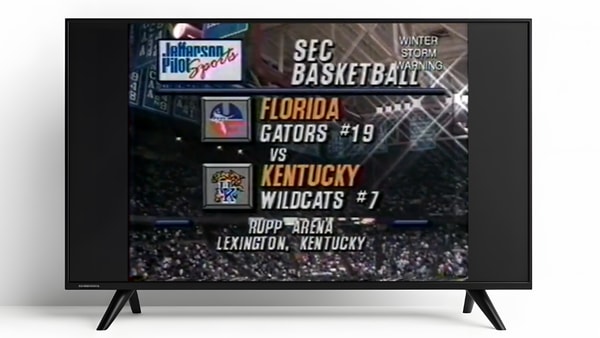
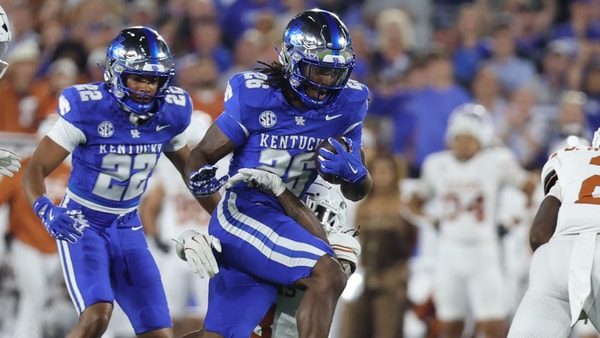


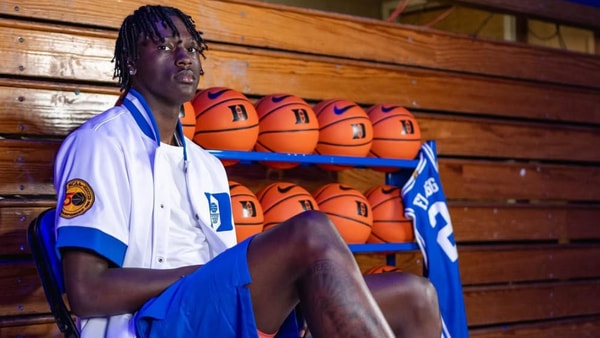
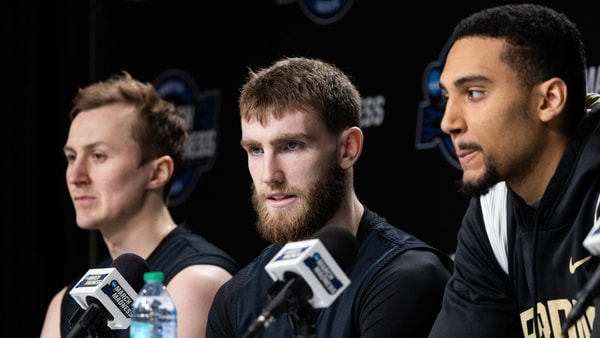

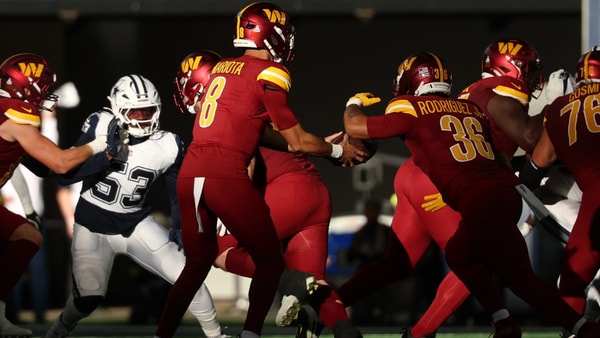
Discuss This Article
Comments have moved.
Join the conversation and talk about this article and all things Kentucky Sports in the new KSR Message Board.
KSBoard